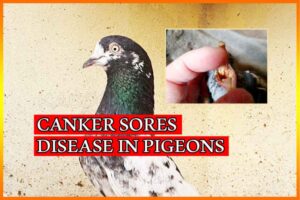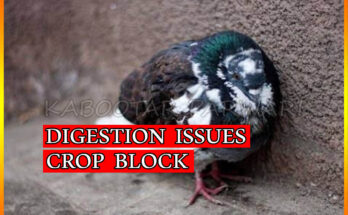What is Egg Binding in Hens and Pigeons? Egg binding refers to the condition where a female bird, such as a hen or pigeon, is unable to pass a fully formed or partially developed egg. In some cases, the egg may have a soft shell or no shell at all. Egg binding can be a serious problem and often leads to the death of the bird if not treated promptly.
When a bird is suffering from egg binding, it exhibits certain noticeable signs. For instance, an egg-bound hen will typically be found sitting on the nest for extended periods, appearing lethargic and unwell. The area above the vent may become swollen and warm to the touch. When walking around, the bird may seem miserable, with ruffled feathers. Sometimes, egg binding occurs when the egg is abnormally large, making it difficult for the bird to pass.
In the case of pigeons, an egg-bound bird will exhibit similar symptoms. It will isolate itself in a corner, appearing listless and sick. The feathers may be slightly fluffed, giving the bird a rounder appearance than usual. This feather fluffing is a natural behavior exhibited by birds when they feel cold, and the egg-bound pigeon may experience a sensation of extreme coldness. Additionally, the bird will appear droopy, with dull eyes and feathers. It is important to note that an egg-bound pigeon will avoid flying, as the physical strain can exacerbate the condition.
Egg binding is distressing for birds. It requires immediate veterinary care. If you notice signs, seek professional help. This prevents complications and ensures well-being of the bird.
Why Egg Binding Problem in Pigeons ?
Egg Binding usually happens when the hen is too young. The poor hen has just not grown sufficiently to allow the easy passage of the developed egg. Egg binding is an emergency situation. The bird may be given fluids intravenously or subcutaneously as well as antibiotics, steroids and calcium.
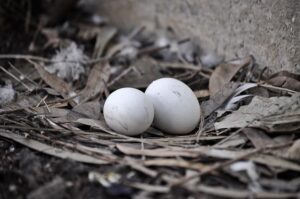
Another common theory is that egg binding is the result of lack of calcium in the diet. Most of us offer a variety of calcium sources to our birds (egg shell, cuttlebone, oyster shell) and yet hens still die from egg binding.
I do believe nutrition is at the root of this problem. Most bird breeders are careful to offer a variety of calcium sources. Rather, I believe, the problem is the inability of the bird to metabolize the calcium that is readily available in the diet. The other major cause is poor condition of the mucus membranes in the vent area.
Egg Bound Hen Treatment
When dealing with a bird suffering from egg binding, creating the right environment is crucial for their well-being. One of the primary requirements is a warm and quiet space for the bird, as this allows their energy reserves to be directed towards passing the egg instead of maintaining body warmth. By providing a cozy and calm environment, you’re helping the bird to focus on the necessary task at hand.
In addition to creating the right atmosphere, it is important to address calcium deficiency, as this can significantly contribute to the occurrence of egg binding. Increasing calcium intake can greatly enhance the muscle action required for expelling the egg. One effective calcium supplement is Calcivet by Vetafarm, which not only provides a source of calcium but also contains vitamin D3, which is essential for the absorption of calcium.
Administering the calcium supplement directly into the bird’s crop can be helpful, especially if the bird is not consuming food or water properly. This ensures that the bird receives the necessary nutrients directly and efficiently.
By focusing on these two key aspects – providing a warm and tranquil environment and supplementing with calcium – you can potentially assist the bird in passing the egg and alleviate the distress caused by egg binding. However, it is important to consult a veterinarian for a proper diagnosis and guidance tailored specifically to the bird’s condition.
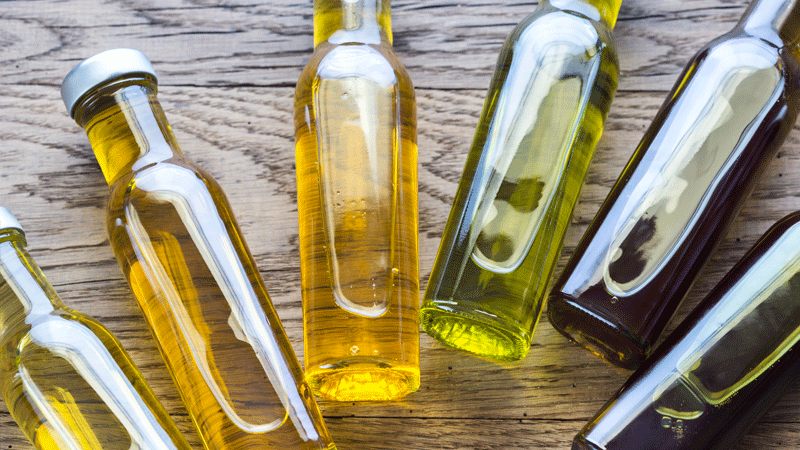
Caring for Egg-Bound Hen Birds: Steps to Ensure their Recovery
Massaging a small amount of vegetable oil around the vent will help soften the mucus membranes around the vent and help the hen pass the egg.
Administer a dose of castor oil and then anoint well up the vent with hot olive oil, applied by means of a feather, gently pressing the parts to help the pas sage of the egg.
Once the egg has passed, the bird will appear to have made a complete recovery. Pairing the same bird again can result in death, treat your bird first to address natural deficiencies.
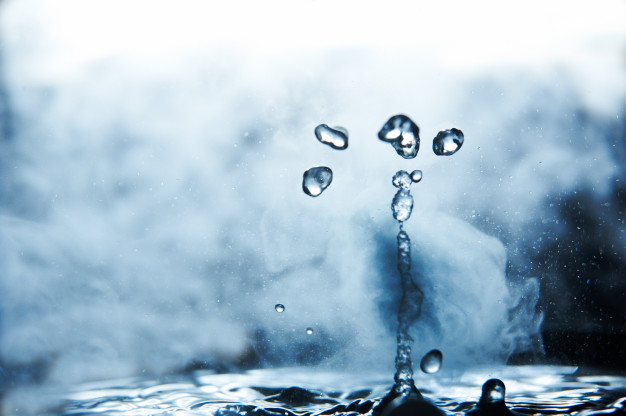
Emergency Care for Birds with Worsening Egg Binding
It is important to exercise caution when handling birds experiencing egg binding. Excessive handling can further distress the bird and potentially worsen their condition. Therefore, it is generally not advisable to handle them excessively or without proper knowledge and expertise.
f the aforementioned treatments and interventions fail to resolve the issue, a skilled and experienced professional may need to perform an operation to remove the lodged egg. It is vital to emphasize that only a trained professional should undertake this procedure. Attempting it without proper expertise can have severe consequences and potentially result in the bird’s death.
Therefore, if the condition persists despite initial treatments, we highly recommend promptly seeking professional veterinary assistance. Skilled veterinarians possess the necessary knowledge, skills, and equipment to safely and successfully perform surgical interventions when needed.
Remember, the well-being and survival of the bird should always be the top priority. By allowing trained professionals to handle complex procedures, such as egg removal operations, you can ensure the best possible outcome for the afflicted bird.


